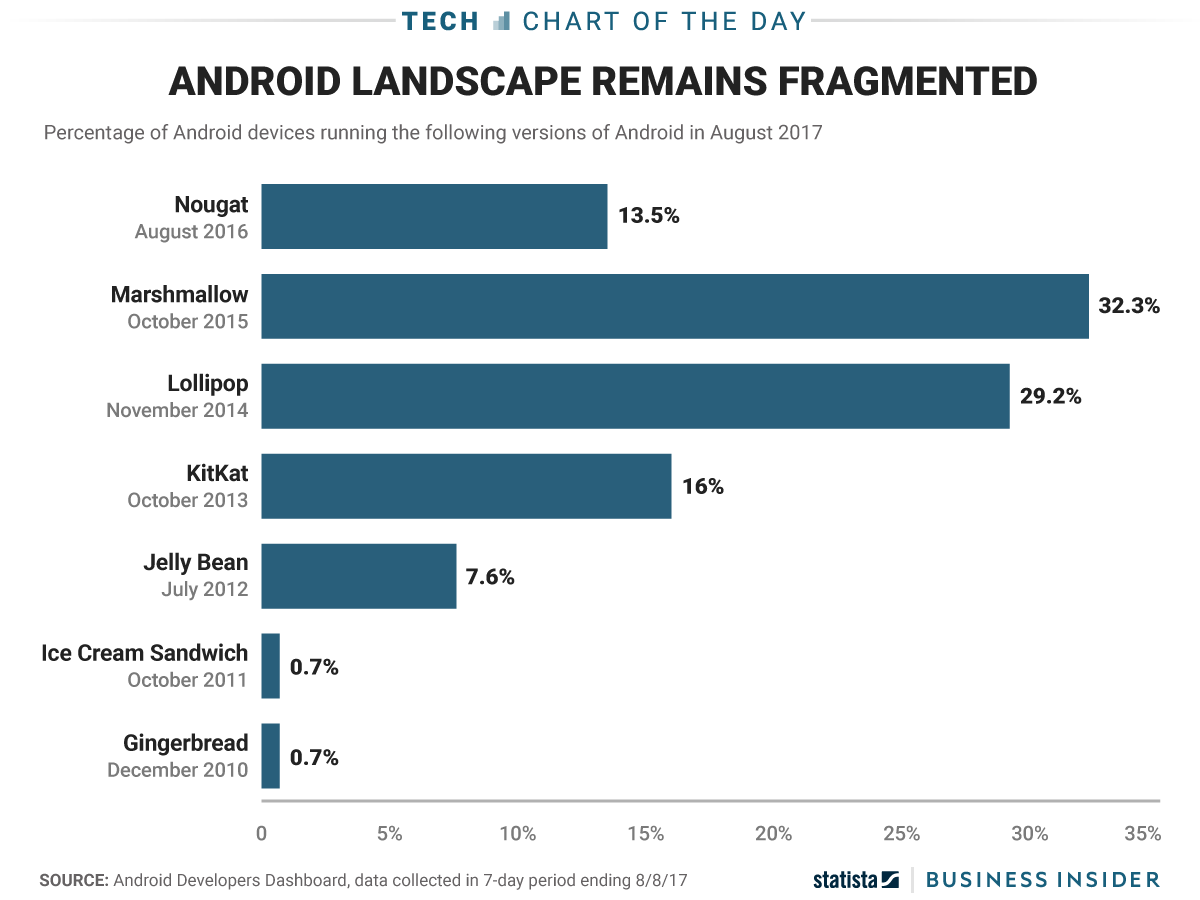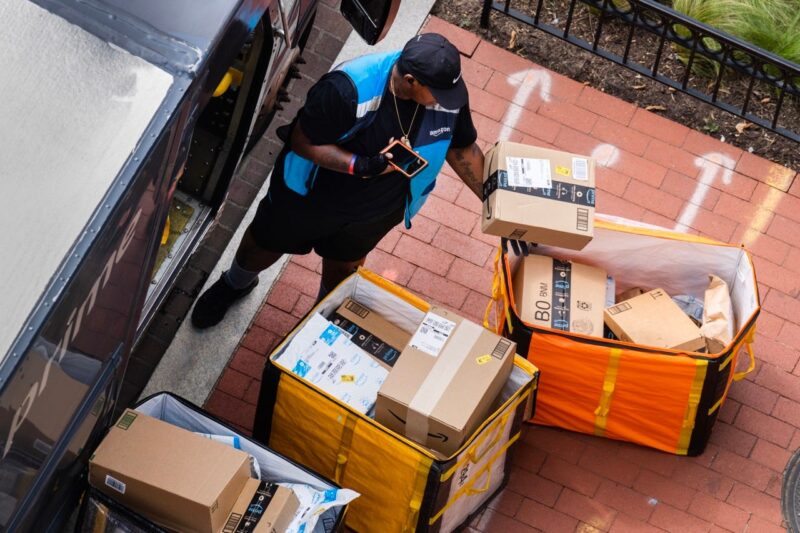You may have missed it while watching the solar eclipse, but Google released a new version of the Android operating system on Monday. Code-named “Oreo,” the latest version replaces Android Nougat, which Google released last year. Given that there are more than 2 billion active Android devices today, the update could have a big effect on how much of the world interacts with their smartphones and tablets.
Eventually, anyway. As we can see in the chart from Statista, which is based on data from Android Developers Dashboard, Android users don’t tend to jump to the newest version of the operating system right away, and older versions can linger on and on. That’s unlike Apple’s iOS, which underlies the iPhone and iPad, where the vast majority of users are typically running the latest version.
Google has been working on a fix for this, but the blame lies mostly with smartphone makers and wireless carriers. Before users can install new versions of Android on their gadgets, the updates typically have to be approved by the device manufacturers and carriers first. And that process can drag on and on.











